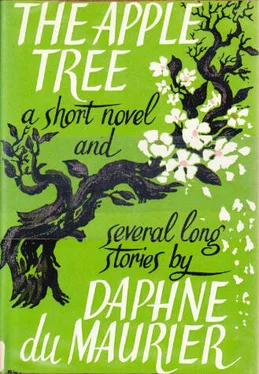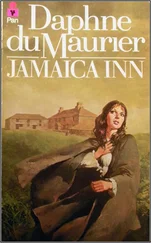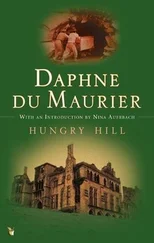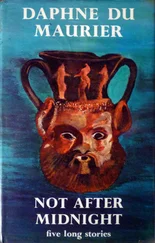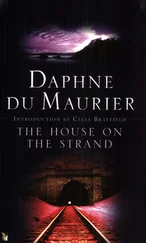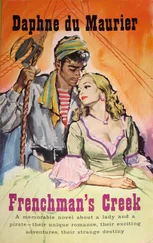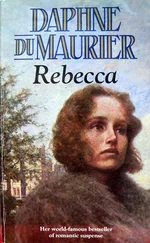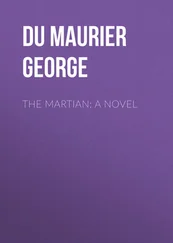Daphne du Maurier - The Apple Tree - a short novel & several long stories
Здесь есть возможность читать онлайн «Daphne du Maurier - The Apple Tree - a short novel & several long stories» весь текст электронной книги совершенно бесплатно (целиком полную версию без сокращений). В некоторых случаях можно слушать аудио, скачать через торрент в формате fb2 и присутствует краткое содержание. Жанр: Современная проза, Триллер, Социально-психологическая фантастика, на английском языке. Описание произведения, (предисловие) а так же отзывы посетителей доступны на портале библиотеки ЛибКат.
- Название:The Apple Tree: a short novel & several long stories
- Автор:
- Жанр:
- Год:неизвестен
- ISBN:нет данных
- Рейтинг книги:5 / 5. Голосов: 1
-
Избранное:Добавить в избранное
- Отзывы:
-
Ваша оценка:
- 100
- 1
- 2
- 3
- 4
- 5
The Apple Tree: a short novel & several long stories: краткое содержание, описание и аннотация
Предлагаем к чтению аннотацию, описание, краткое содержание или предисловие (зависит от того, что написал сам автор книги «The Apple Tree: a short novel & several long stories»). Если вы не нашли необходимую информацию о книге — напишите в комментариях, мы постараемся отыскать её.
The Apple Tree: a short novel & several long stories — читать онлайн бесплатно полную книгу (весь текст) целиком
Ниже представлен текст книги, разбитый по страницам. Система сохранения места последней прочитанной страницы, позволяет с удобством читать онлайн бесплатно книгу «The Apple Tree: a short novel & several long stories», без необходимости каждый раз заново искать на чём Вы остановились. Поставьте закладку, и сможете в любой момент перейти на страницу, на которой закончили чтение.
Интервал:
Закладка:
I asked him how much he knew of her life before he married her. He told me there was very little to know. Her parents had died when she was young, and she had been brought up in Wales by an aunt. There was no peculiar background, no skeletons in the cupboard. Her upbringing had been entirely ordinary in every way.
"It's no use," said Victor, "you can't explain Anna. She is just herself, unique. You can't explain her any more than you can explain the sudden phenomenon of a musician, born to ordinary parents, or a poet, or a saint. There is no accounting for them. They just appear. It was my great fortune, praise God, to find her, just as it is my own personal hell, now, to have lost her. Somehow I shall continue living, as she expected me to do. And once a year I shall go back to Monte Verità."
His acquiesccnce to the total break-up of his life astounded me. I felt that I could not have overcome my own despair, had the tragedy been mine. It seemed to me monstrous that an unknown sect, on a mountain side, could, in the space of a few days, have such power over a woman, a woman of intelligence and personality. It was understandable that ignorant peasant girls could be emotionally misled and their relatives, blinded by superstition, do nothing about it. I told Victor this. I told him that it should be possible, through the ordinary channels of our embassy, to approach the government of that country, to have a nation-wide enquiry, to get the press on to it, the backing of our own government. I told him I was prepared, myself, to set all this in motion. We were living in the twentieth century, not in the middle ages. A place like Monte Verità should not be permitted to exist. I would arouse the whole country with the story, create an international situation.
"But why," said Victor quietly, "to what end?"
"To get Anna back," I said, "and to free the rest. To prevent the break-up of other people's lives."
"We don't," said Victor, "go about destroying monasteries or convents. There are hundreds of them, all over the world."
"That is diiferent," I argued. "They are organised bodies of religious people. They have existed for centuries."
"I think, very probably, Monte Verità has too."
"How do they live, how do they eat, what happens when they fall ill, when they die?"
"I don't know. I try not to think about it. All I cling to is that Anna said she had found what she was searching for, that she was happy. I'm not going to destroy that happiness."
Then he looked at me, in a way half puzzled, half wise, and said, "It's odd, your talking in this way. Because by rights you should understand Anna's feelings more than I do. You were always the one with mountain fever. You were the one, in old climbing days, to have your head in the clouds and quote to me—
'The world is too much with us; late and soon,
Getting and spending, we lay waste our powers."'
I remember getting up and going over to the window and looking out over the foggy street, down to the embankment. I said nothing. His words had moved me very much. I could not answer them. And I knew, in the depths of my heart, why I hated the story of Monte Verità and wanted the place to be destroyed. It was because Anna had found her Truth, and I had not…
That conversation between Victor and myself made, if not a division in our friendship, at least a turning point. We had reached a half-way mark in both our lives. He went back to his home in Shropshire, and later wrote to me that he intended making over the property to a young nephew, still at school, and during the next few years intended having the lad to stay with him in the holidays, to get him acquainted with the place. After that, he did not know. He would not commit himself to plans. My own future, at this time, was full with change. My work necessitated living in America for a period of two years.
Then, as it turned out, the whole tenor of the world became disrupted. The following year was 1914.
Victor was one of the first to join up. Perhaps he thought this would be his answer. Perhaps he thought he might be killed. I did not follow his example until my period in America was over. It was certainly not my answer, and I disliked every moment of my army years. I saw nothing of Victor during the whole of the war; we fought on different fronts, and did not even meet on leave. I did hear from him, once. And this is what he said:
In spite of everything, I have managed to get to Monte Verità each year, as I promised to do. I stayed a night with the old man in the village, and climbed on to the mountain top the following day. It looked exactly the same. Quite dead, and silent. I left a letter for Anna beneath the wall and sat there, all the day, looking at the place, feeling her near. I knew she would not come to me. The next day I went again, and was overjoyed to find a letter from her in return. If you can call it a letter. It was cut on flat stone, and I suppose this is the only method they have of communication. She said she was well, and strong, and very happy. She gave me her blessing, and you also. She told me never to be anxious for her. That was all. It was, as I told you at the nursing-home, like a spirit message from the dead. With this I have to be content, and am. If I survive this war, I shall probably go out and live somewhere in that country, so that I can be near her, even if I never see her again, or hear nothing of her but a few words scrawled on a stone once a year.
Good luck to yourself, old fellow. I wonder where you are.
Victor
When the Armistice came, and I got myself demobilised and set about the restoration of my normal life, one of the first things I did was to enquire for Victor. I wrote to him, in Shropshire. I had a courteous reply from the nephew. He had taken over the house and the estate. Victor had been wounded, but not badly. He had now left England and was somewhere abroad, either in Italy or Spain, the nephew was not sure which. But he believed his uncle had decided to live out there for good. If he had news of him, he would let me know. No further news came. As to myself I decided I disliked post-war London and the people who lived there. I cut myself loose from home ties too, and went to America.
I did not see Victor again for nearly twenty years.
It was not chance that brought us together again. I am sure of that. These things are predestined. I have a theory that each man's life is like a pack of cards, and those we meet and sometimes love are shuffled with us. We find ourselves in the same suit, held by the hand of Fate. The game is played, we are discarded, and pass on. What combination of events brought me to Europe again at the age of fifty-five, two or three years before the second world war, does not matter to this story. It so happened that I came.
I was flying from one capital city to another — the names of both are immaterial — and the aeroplane in which I travelled made a forced landing, luckily without loss of life, in desolate mountainous country. For two days the crew and passengers, myself amongst them, held no contact with the outer world. We camped in the partially wrecked machine and waited for rescue. This adventure made headlines in the world press at the time, even taking precedence, for a few days, over the simmering European situation.
Hardship, for those forty-eight hours, was not acute. Luckily there were no women or children passengers travelling, so we men put the best face on it we could, and waited for rescue. We were confident that help would reach us before long. Our wireless had functioned until the moment of the forced landing, and the operator had given our position. It was all a matter of patience, and of keeping warm.
For my part, with my mission in Europe accomplished and no ties strong enough back in the States to believe myself anxiously awaited, this sudden plunging into the sort of country that years ago I had most passionately loved was a strange experience. I had become so much a man of cities, and a creature of comfort. The high pulse of American living, the pace, the vitality, the whole breathless energy of the New World, had combined to make me forget the ties that still bound me to the Old.
Читать дальшеИнтервал:
Закладка:
Похожие книги на «The Apple Tree: a short novel & several long stories»
Представляем Вашему вниманию похожие книги на «The Apple Tree: a short novel & several long stories» списком для выбора. Мы отобрали схожую по названию и смыслу литературу в надежде предоставить читателям больше вариантов отыскать новые, интересные, ещё непрочитанные произведения.
Обсуждение, отзывы о книге «The Apple Tree: a short novel & several long stories» и просто собственные мнения читателей. Оставьте ваши комментарии, напишите, что Вы думаете о произведении, его смысле или главных героях. Укажите что конкретно понравилось, а что нет, и почему Вы так считаете.
